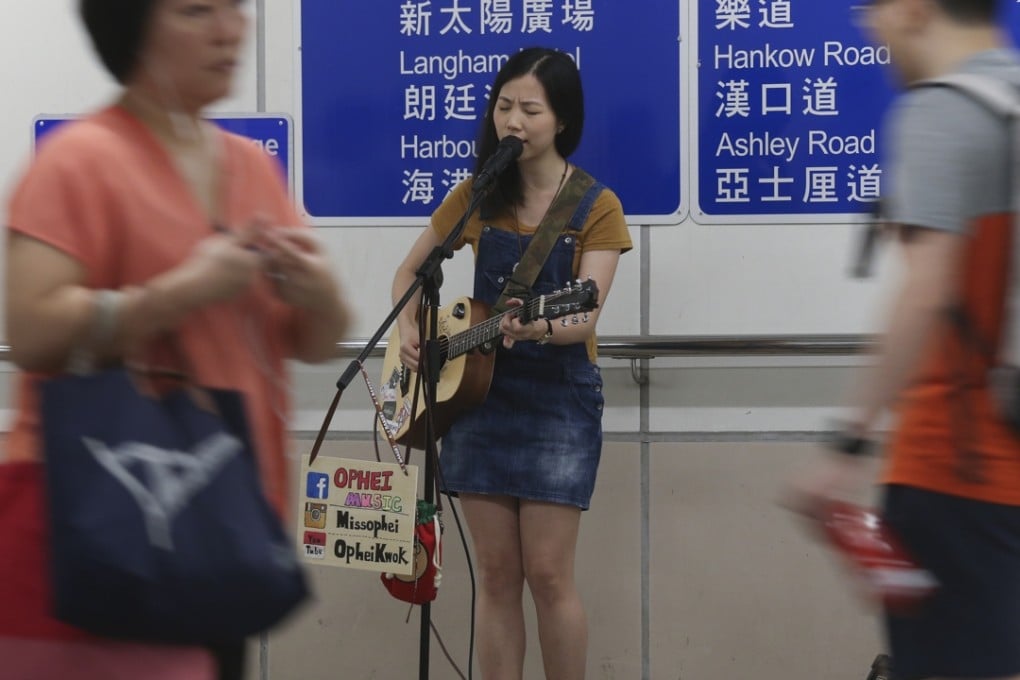Why Hong Kong’s buskers are becoming vocal critics
Some street performers are starting to wonder if regulations might be needed to weed out the dire displays and give more opportunity to engaging acts

Ophei Kwok Fung-wa has been busking for several years and whenever the police ask her to leave or keep the volume down, she always complies. But a few months ago, she and her friends had to call the cops on some fellow buskers in Tsim Sha Tsui – they were just too loud.
“Sometimes you’ll see people with huge amplifiers…and we just have two small amplifiers,” says Kwok, a part-time airport worker.
“We tried negotiating, but they refused to turn down their volume and we couldn’t hear ourselves play. That’s the only reason why we called the cops.
READ MORE: Hong Kong’s buskers: the good, the bad and the dreadful
“I’d rather that neither of us get to perform; it had already become noisy. The people walking by and listeners would be uncomfortable.”
Kwok started busking two years ago. She and a few friends had been practising on their guitars and, as it was around Christmas, they decided to try performing on the streets. The friends picked a spot outside the Cultural Centre and played from 2pm until after midnight.
Busking – performing in a public space, often for donations – has become more popular in Hong Kong in recent years. Which is why high-traffic spots near the ferry piers, in the subways around Tsim Sha Tsui and on Sai Yeung Choi Street in Mong Kok can sometimes get pretty crowded and noisy.

Some buskers complain that they are often treated like beggars, although street performers can greatly enrich city life. Others, however, are starting to wonder if some regulation might be needed to weed out the dire displays and give more opportunity to more engaging street performers.